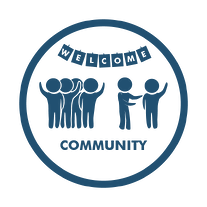This is the 10th of a 12 part series on Evidence Based Principles. Subscribe to our blog and get this series and the upcoming Risk Principle Simplified series delivered right to your inbox.
Principle 6: Engage On-Going Support in Natural Communities
To paraphrase a proverb, “It takes a community to transition an offender.” As a community corrections agent, you will work diligently to replace the antisocial influences with a more prosocial network of friends, colleagues and associates. You discuss at length the importance of the environment and having good role models. While the client is in your care, you will support, provide empathy, give advice, inspire and prepare the client for their new lifestyle after supervision. It will take an army of people to replace the roles that you play. Literally. The army is the community. It is pastors and employers, mothers and coaches, colleagues and therapists. The work you do cannot be replaced by one or even two people.
In the corporate world, succession planning is a big deal. Who will take over as the CEO when this one retires? Who will be the next Director of Sales? Who is being groomed to run the show? You cannot wait until the death or the retirement of a vital person to begin thinking about replacing that person or at least the roles that he or she played. Similarly, who are you grooming to take over the roles you are playing in the client’s life? Who will ask the hard questions? Who will celebrate their successes? Who will provide timely advice? Who will be there for the “high five” for that promotion at work? What will replace the therapeutic environment that has enveloped the client? Sadly, if there is not a solid plan in place, the old playground and playmates will certainly welcome the return of a long lost friend.
Psychologists are an interesting bunch. Many approach their theory as religion and defend it from any foreign attack. They debate theoretical concepts and seek to persuade others to join their camp. Thus, there are few concepts that do not trigger instant disagreement among the experts. These “happy-path” concepts include relationship power, environment as influencer, and role modeling.
The beauty of engaging the community in your efforts to help the client is that it provides all three, relationship, environment, and role modeling. Grooming others to play your roles begins at the beginning of treatment, not towards the end. The community will need your assistance too. Welcoming back offenders with open arms is not the community’s default position.
Key concepts to consider:
- Environment: Environment is the single greatest influencer of behavior.
-
Role Modeling: Role modeling is the second greatest influencer of behavior.
-
Group Norms: When people feel connected to a given group of people, they adhere to the group norms of that group.
In our next blog in this series, we will address Principle 7, Measure Relevant Processes/Practices. Subscribe to our blog and get this series and the upcoming Risk Principle Simplified series delivered right to your inbox.
This a 12 part series. Here are all 12 blogs in the series:
- An Introduction to Evidence Based Principles (EBP)
- EBP: Building the Therapeutic Relationship
- Community Corrections Interventions Must Begin with Assessment
- To Be or Not to Be: Framing Offender Motivation
- EBP: How Good is Your Aim?
- Discovering Values in Collaboration
- Practice Makes...Habit
- Structure & Accountability Still Matter!
- Catch Them Being Good!
- It Takes a Community to Transition an Offender
- What Works Anyway? Prove it!
- Feedback Please!



